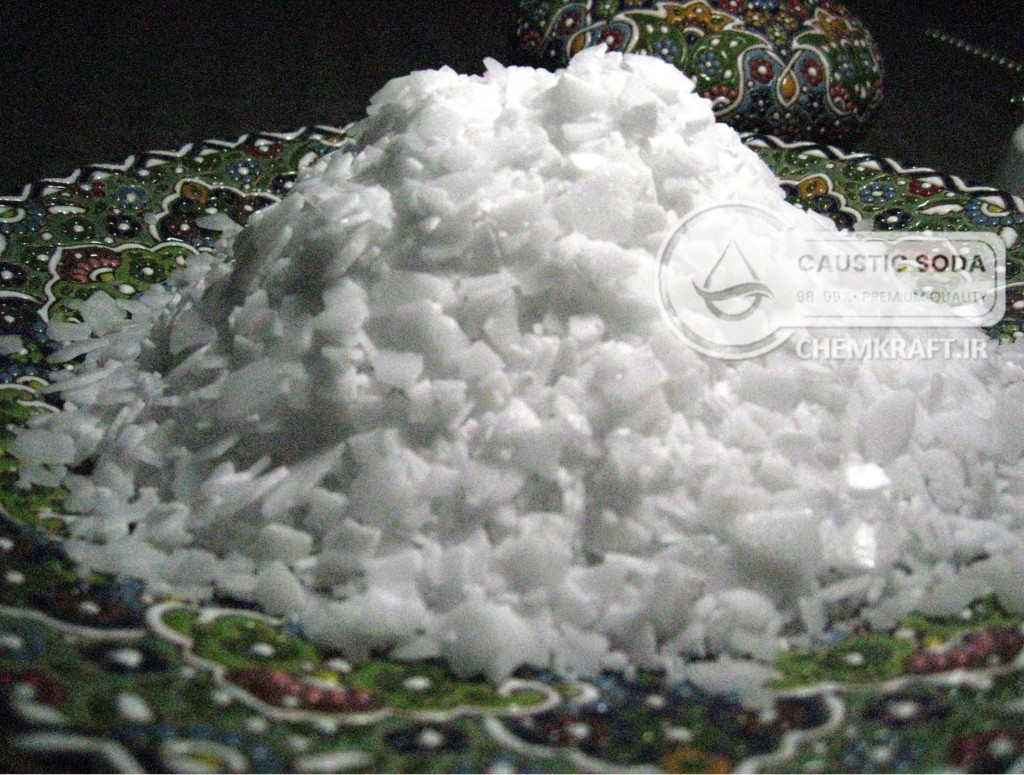Introduction:
Uzbekistan’s Caustic Soda Imports: Uzbekistan, situated in Central Asia, has been a significant player in the global trade arena, with various industries contributing to its economic growth. Among the essential commodities in international trade is caustic soda, a versatile chemical compound with applications spanning industries such as textiles, paper, and chemicals.
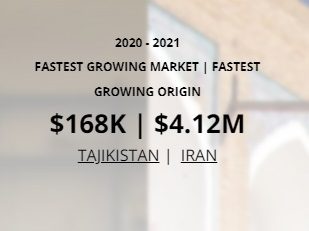
Global Market Dynamics:
Uzbekistan’s caustic soda imports are intricately connected to the dynamics of the global chemical industry. The demand for caustic soda, also known as sodium hydroxide, is influenced by factors such as industrial growth, manufacturing activities, and advancements in various sectors. As a crucial raw material, caustic soda holds a pivotal role in multiple industrial processes, prompting countries like Uzbekistan to engage in the international market to meet their domestic demands.
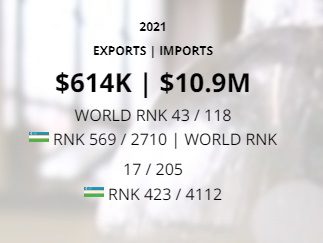
Supply Sources and Trade Partners:
Uzbekistan’s caustic soda imports likely originate from a diverse set of global suppliers. Major producers of caustic soda include countries in Asia, the Middle East, and Europe. Partnerships and trade agreements may play a pivotal role in shaping the import landscape, with Uzbekistan establishing relationships with suppliers that offer competitive pricing, quality assurance, and reliability in the supply chain.
Application in Uzbekistan’s Industries:
The significance of caustic soda in Uzbekistan can be gauged by its applications across various industrial sectors. From the textile industry, where it aids in fabric treatment processes, to the paper and pulp industry, where it contributes to the production of paper, caustic soda serves as a foundational element in the manufacturing landscape. Understanding the specific needs of these industries is crucial for Uzbekistan’s import strategies.
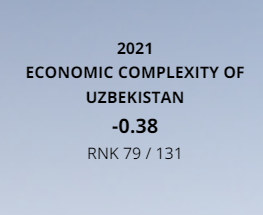
Uzbekistan’s Caustic Soda Imports
Trade Regulations and Compliance:
The import of caustic soda is subject to international trade regulations and standards. Uzbekistan, like any other country engaged in global trade, adheres to guidelines set by international bodies such as the United Nations and the World Trade Organization. Compliance with these standards ensures the quality, safety, and environmental sustainability of imported caustic soda.
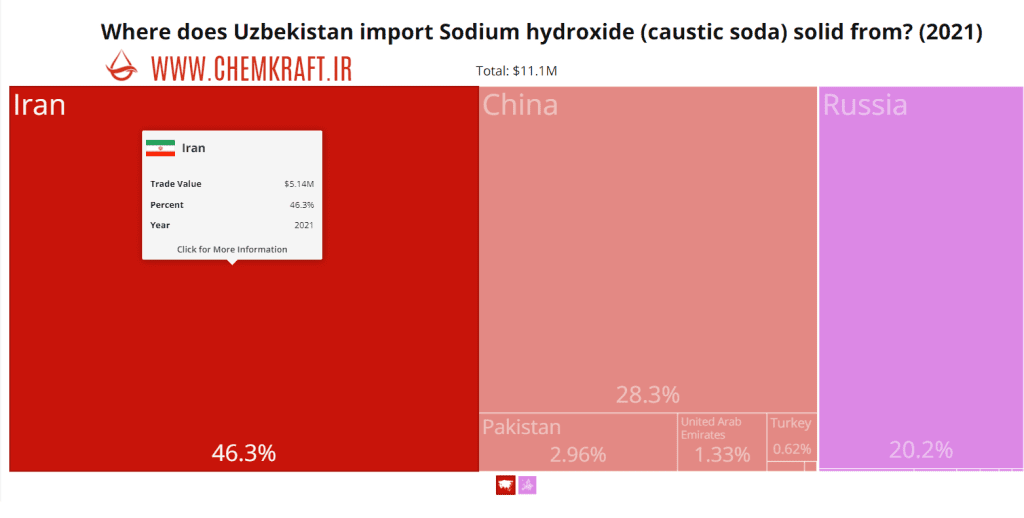
Economic Impact and Future Trends:
The import of caustic soda has broader economic implications for Uzbekistan. It contributes to the growth of industries, job creation, and the overall economic development of the country. Looking forward, trends in global chemical markets, advancements in technology, and shifts in consumer preferences will influence the trajectory of Uzbekistan’s caustic soda imports.
In conclusion, Uzbekistan’s caustic soda imports are a reflection of its integration into the global economy. The strategic management of these imports, considering factors such as supply chain resilience, quality assurance, and compliance with international standards, will play a vital role in shaping the nation’s industrial landscape and economic future.

Uzbekistan, a nation in Central Asia, has witnessed a notable transformation in its caustic soda import landscape. Traditionally reliant on China as the primary source of this versatile chemical compound, Uzbekistan has recently undergone a significant shift, with Iran emerging as the dominant supplier, contributing to nearly 50% of the country’s caustic soda imports. This strategic realignment in trade partnerships reflects a dynamic evolution in Uzbekistan’s economic and diplomatic ties within the region.
Historical Dependence on China:
For years, China has been a major trade partner for Uzbekistan, supplying the nation with critical raw materials, including caustic soda. The partnership was built on factors such as geographical proximity, established trade routes, and China’s robust manufacturing capabilities. Uzbekistan’s industries, ranging from textiles to paper production, relied on a steady supply of caustic soda to fuel their growth.
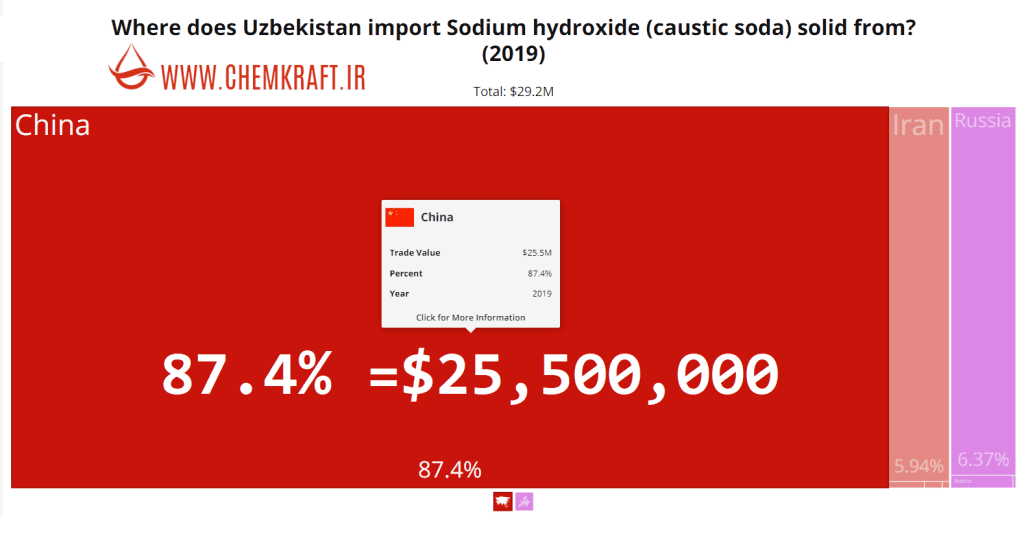
Iran’s Ascendance as a Key Supplier:
The emergence of Iran as the primary supplier of caustic soda to Uzbekistan represents a strategic diversification in sourcing. This shift could be attributed to several factors, including diplomatic initiatives, trade agreements, and the desire to balance Uzbekistan’s reliance on a single source. Iran’s geographical proximity, coupled with its expanding chemical industry, positions it as a reliable and competitive supplier for Uzbekistan’s growing needs.
Diplomatic and Economic Considerations:
The transition to Iran as a key supplier underscores the importance of diplomatic and economic considerations in shaping trade relationships. Bilateral agreements and cooperative initiatives between Uzbekistan and Iran may have facilitated this shift, promoting mutual economic interests and fostering a more diversified and resilient import strategy for Uzbekistan.
Impact on Uzbekistan’s Industries:
The change in caustic soda suppliers has direct implications for Uzbekistan’s industries. Sectors such as textiles, where caustic soda is a crucial component in fabric treatment, and paper production, where it contributes to the manufacturing process, are likely to adjust their supply chain strategies to accommodate the shift. Adapting to the qualities and specifications of Iranian caustic soda will be crucial for seamless integration into Uzbekistan’s industrial processes.
Challenges and Opportunities:
While the transition to Iranian caustic soda opens new avenues for collaboration, it also presents challenges. Adherence to international trade regulations, maintaining quality standards, and ensuring a smooth logistics chain will be paramount. However, the strategic diversification of suppliers brings resilience, reducing the risk associated with overreliance on a single market.
In conclusion, Uzbekistan’s pivot towards Iran as the primary supplier of caustic soda marks a significant chapter in the nation’s economic narrative. This shift reflects the dynamism of global trade, emphasizing the importance of strategic partnerships, economic diplomacy, and adaptability in ensuring the continued growth and stability of Uzbekistan’s industries. The collaboration between these two nations not only shapes the caustic soda import landscape but also sets the stage for broader economic cooperation in the future.
